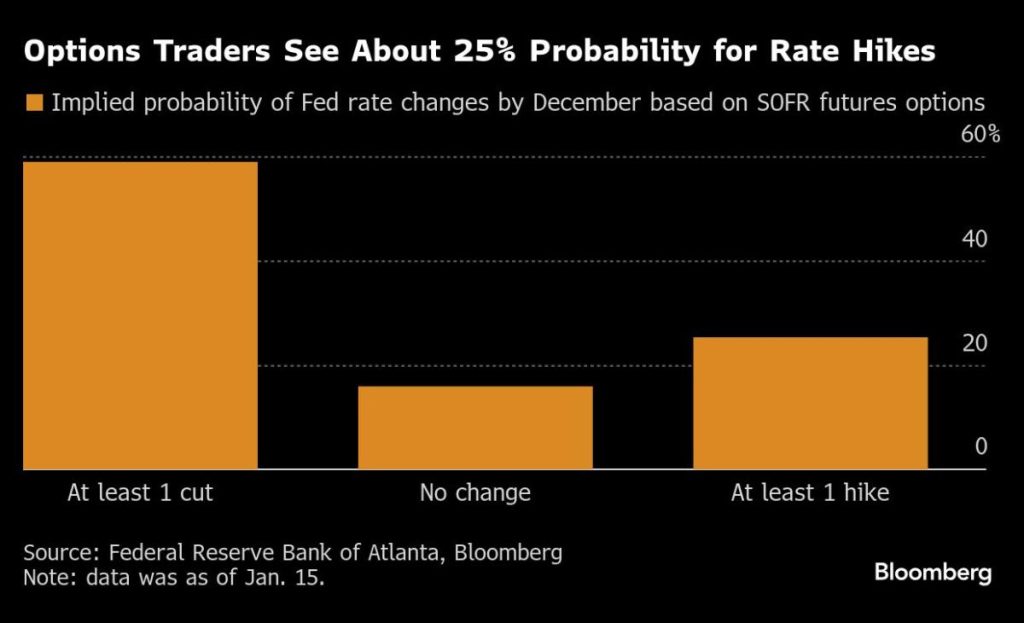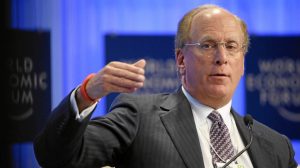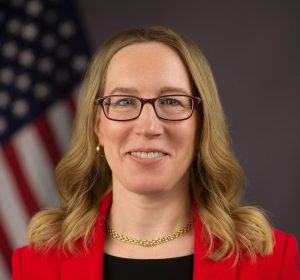
(Bloomberg) — It’s at best, a longshot, but one that’s emerged among a group of die-hard bond traders — that the Federal Reserve’s next move on interest rates will be up, not down.
Most Read from Bloomberg
The wager, which arose after a blowout jobs report on Jan. 10, stands in stark contrast to the consensus on Wall Street for at least one rate cut this year. That contrarian bet has remained in place even after a benign inflation report on Wednesday strengthened the Fed’s rate-cutting stance and caused yields in the US Treasury market to retreat from multi-year highs.
Based on options linked to the Secured Overnight Financing Rate, traders currently see about a 25% chance that the Fed’s next move will be to lift rates by year end, according to an analysis by Bloomberg Intelligence as of Friday’s close. Those bets were as high as 30% before the consumer price data. Up until over a week ago, a hike wasn’t even entertained — 60% of options traders were betting on more Fed cuts and 40% for a pause.
As with so many things in financial markets these days, it’s effectively a bet on soon-to-be President Donald Trump’s policies. And it hinges on the idea that tariffs and other policies imposed by the new administration will trigger a bounce back in inflation that forces the Fed into an embarrassing about-face.
Phil Suttle, a former New York Federal Reserve economist who now runs his namesake advisory shop, sees the Fed hiking rates in September. “I have them not cutting at all. And that’s not a mad dog view,” he said on the Macro Hive podcast Friday.
Suttle expects Trump, who takes office Monday, to push through tariffs and restrict immigration, thus lifting inflation. The US is already starting to see wages pick up again, he said.
For now, Suttle’s view remains extreme. Bond traders have fully priced in a quarter-point rate cut for this year and saw roughly 50% of a chance for a second reduction, compared with just one cut a week earlier. On Thursday, Fed Governor Christopher Waller said policymakers could lower rates again in the first half of 2025 if inflation data continue to be favorable.
The remarks pushed US government bond yields lower. Earlier last week, the benchmark 10-year Treasury peaked at 4.81%, the highest since late 2023. Long-term yields have been increasing since the Fed began cutting rates in September.



